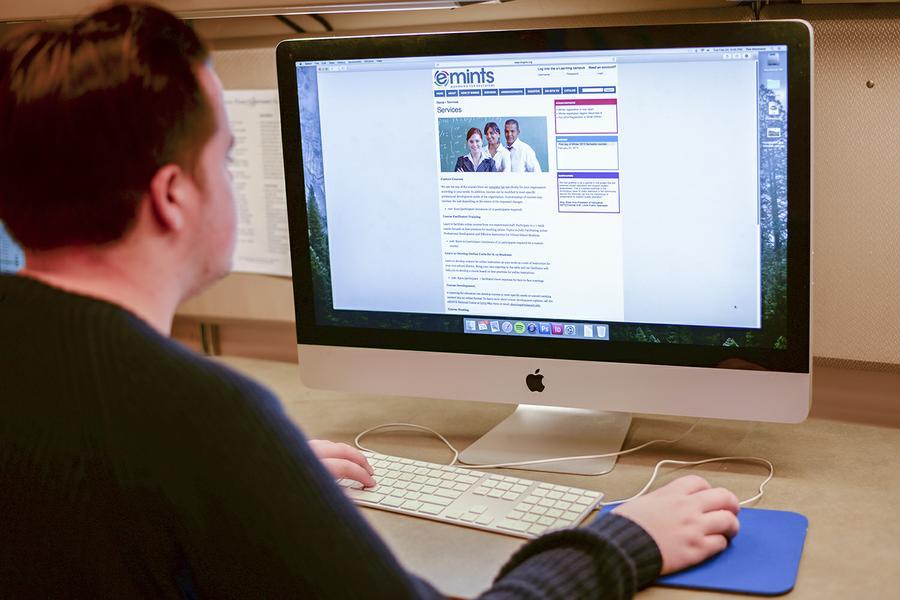
This past week, Missouri lawmakers opened discussion to the proposition of virtual schooling for students wishing to transfer from struggling, unaccredited school districts — a proposition that has led to growing concern regarding the financial strain this might pose to Missouri public school districts.
The bill, House Bill 849, is aimed at correcting the state’s current student transfer law, with this virtual public school system offered as one possible provision. Rep. Kathryn Swan, R-Cape Girardeau, sponsored the bill.
“Virtual school courses today often contain more elements than the online courses first developed a few years ago,” said Brent Ghan, Missouri School Boards Association chief communications officer. “These courses may incorporate video and other elements to enhance instruction.”
At this point, the bill is very much a work in progress, with debates in the Senate continuing throughout this week and for the duration of the coming weeks, Ghan said.
The House and the Senate currently have two, slightly different versions of the bill, which should make reaching a decision in both chambers of the legislature a lengthy process, Ghan said.
“According to the way the House bill is currently written, the student would first and foremost have to be in an unaccredited district and would then have the opportunity to transfer,” said Sarah Potter, Missouri Department of Elementary and Secondary Education communications coordinator.
The Senate version of the bill looks at all school buildings in the state. If that buildings’ performance report falls below 50 percent, students in that building would be able to transfer first to other schools within the district and then to schools outside the district, Potter said.
To be considered an “unaccredited” school district, schools within the district must have performed poorly for a number of years and consistently failed to meet State Board of Education goals, according to the Children’s Education Alliance of Missouri.
Also included in the virtual schooling provision are “provisionally accredited” school districts, or districts that the Board of Education is closely monitoring due to years of underperformance.
Initial concern for the bill revolved around the number of districts and students that would make the decision to transfer out of failing school districts, creating a large financial burden for Missouri public school systems.
“Under the scenario envisioned in the bill, school districts would fit the bill for students interested in taking virtual courses,” Ghan said. “If a student would opt to move from a school district where they live to a virtual school, the state funding that belonged to that student would follow that student. It probably would not be a cost to the student, but it certainly would be a cost to the school district.”
The latest amendments to the bill have been directed toward correcting this problem by narrowing the number of applicable districts and students. With these limits in place, the Missouri School Boards Association does not presently see a problem with the legislation, Ghan said.
“We think (virtual schools) have potential, but we were worried about opening this up to the entire state and having perhaps thousands of students move to virtual schools all at once and negatively impacting local school districts,” Ghan said. “We are actually okay with a new provision in the bill that is much narrower now and is focused on helping students in struggling school districts.”
Apart from financial stressors, additional operational questions lie in just how well students will perform in a primarily independent, self-disciplined learning environment. Online courses are characteristically more flexible than standard lecture or classroom instruction, but have the added potential struggle for students of comprehending and completing tasks alone.
“Virtual education is probably not for all kids,” Ghan said. “It does take a lot of discipline to work essentially by yourself on a virtual course. Some students just don’t thrive in that sort of environment and really need to be in a physical classroom with students, so it does depend a lot.”
In the instance that a student determines that he or she cannot keep up with course material and directing their own learning, the student would be allowed to return to their original district with the understanding that they cannot transfer out again, Potter explained. However, Potter said these rules and guidelines are changing almost daily as the bill develops.
The bill is primarily designed to help struggling students in struggling districts, which extends to aiding students with special needs. For students with disabilities registered with the Individualized Education Program who do not reside in unaccredited districts, the option of the Missouri Virtual Instruction Program is still in place, which would give them the option to seek a more private, tailored learning experience outside of a classroom environment.
“MoVIP is still around, so if a school decides that an autistic or otherwise special needs student would do better in an online environment they can take these classes and they would be reimbursed,” Potter said. “The difference between the MoVIP and what lawmakers are proposing is that rather than taking an online class, we would be creating an actual online school wherein students would receive a diploma from that online school district.”